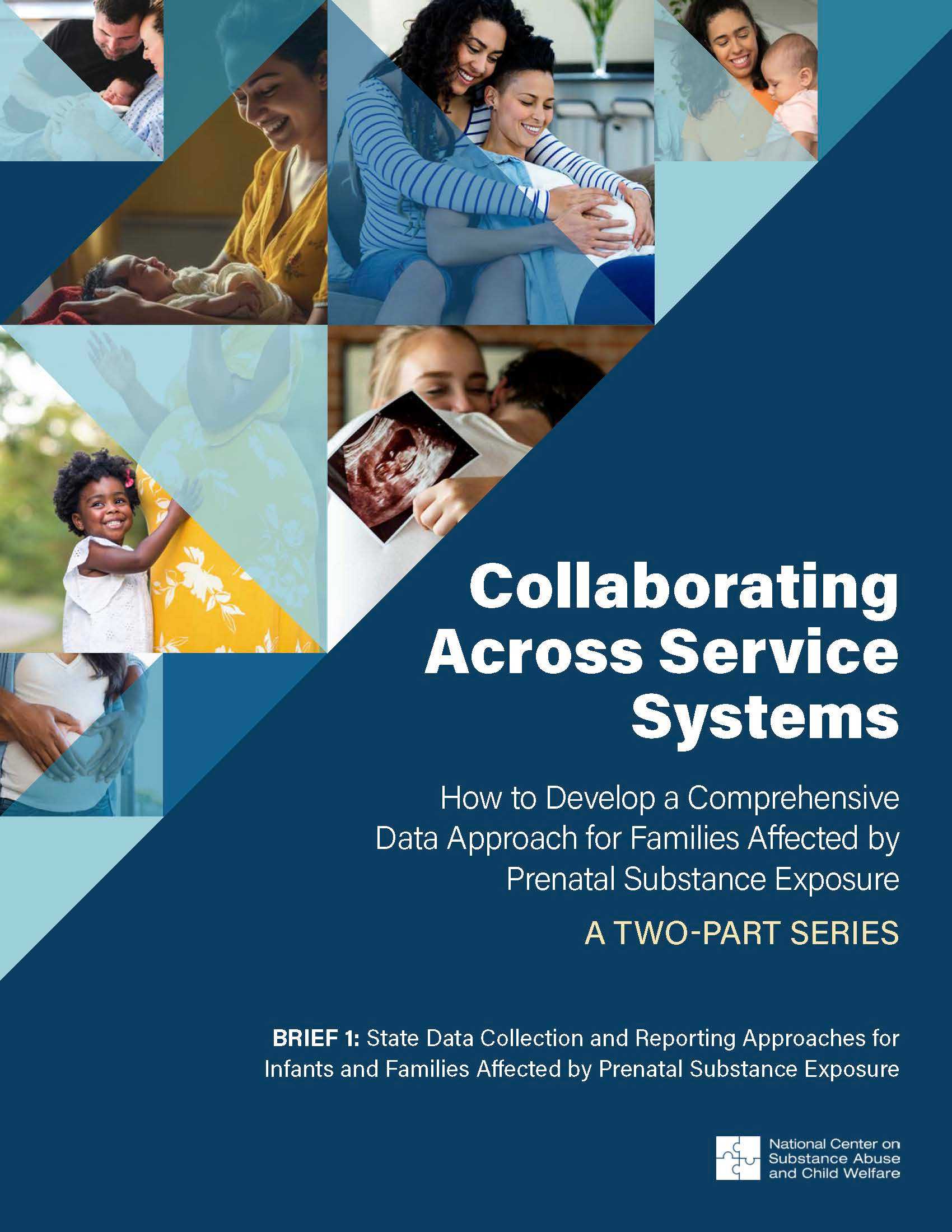Building Collaborative Capacity
Child welfare, substance use/mental health treatment, courts, health care, and community organizations should collaborate to improve outcomes for families affected by substance use disorders. Learn more using the critical resources below.
Highlighted Resource
Collaborating Across Service Systems: How to Develop a Comprehensive Data Approach for Families Affected by Prenatal Substance E...

National Center on Substance Abuse and Child Welfare, 2024
This series is intended for state child welfare and partner agencies (e.g., public health, maternal and child health, substance use
...(Read More)Policy and Practice Resources
Collaborating Across Service Systems: How to Develop a Comprehensive Data Approach for Families Affected by...
National Center on Substance Abuse and Child..., 2024
This series is intended for state child welfare and partner agencies (e.g., public health, maternal and child health, substance use
... (Read More)Building Hope for Families Affected by Substance Use and Mental Health Disorders: A Blueprint for an Effect...
National Center on Substance Abuse and Child..., 2023
This series describes concrete strategies collaboratives can use to enhance the system of care while improving outcomes for families
... (Read More)Comprehensive Framework to Improve Outcomes for Families Affected by Substance Use Disorders and Child Welf...
Center for Children and Family Futures, 2021
Offers a set of proven policy and practice collaborative-based strategies to improve
... (Read More)Sustainability Planning Toolkit - Five Steps to Build a Sustainability Plan for Systems Change
National Center on Substance Abuse and Child..., 2021
Provides collaboratives, organizations, and programs with the tools needed for
... (Read More)Building Collaborative Capacity Series: How to Develop Cross Systems Teams and Implement Collaborative Prac...
National Center on Substance Abuse and Child..., 2021
Provides states and communities with strategies to create cross-systems collaborative teams, communication protocols, and practice
... (Read More)Sustainability Planning for Regional Partnerships Technical Assistance Brief
National Center on Substance Abuse and Child..., 2020
Presents detailed steps grantees can take to begin sustainability planning. Offers a
... (Read More)Child Welfare Timeline for SUD Treatment and Other Partners Technical Assistance Brief
National Center on Substance Abuse and Child..., 2020
Presents three key strategies that agencies can use to strengthen collaboration
... (Read More)Children Affected by Methamphetamine Program: Implementation Progress and Performance Measurement Report
National Center on Substance Abuse and Child..., 2016
SAMHSA funded the Children Affected by Methamphetamine grant program to improve the
... (Read More)A Collaborative Approach to the Treatment of Pregnant Women With Opioid Use Disorders: Practice and Policy ...
Substance Abuse and Mental Health Services A..., 2016
Provides information on the extent of opioid use by pregnant women as well as the
... (Read More)Facilitating Cross-System Collaboration: A Primer on Child Welfare, Alcohol and Other Drug Services, and Co...
Substance Abuse and Mental Health Services A..., 2012
Provides information about the operational characteristics of each system involved
... (Read More)Screening and Assessment for Family Engagement, Retention, and Recovery (SAFERR)
Substance Abuse and Mental Health Services A..., 2006
SAFERR is a collaborative model that helps child welfare professionals, substance use
... (Read More)Related Online Training, Videos, and Webinars
Improving Systems through Collaboration: Top Down or Bottom Up? Both!
Date: July 14, 2022
Features NCSACW staff along with professionals from two of NCSACW’s specialized technical assistance programs: In-Depth Technical
...(Read More)State and Local Examples
Data Capacity: What Is It and Does Our Family Treatment Court Team Have It?
Children and Family Futures, 2021
Describes how FTC teams can assess their cross-systems data capacity, use their data
... (Read More)Advancing a Family-Centered Approach: Lessons from the Prevention and Family Recovery Initiative
Children and Family Futures, 2021
Prevention and Family Recovery (PFR), funded by the Doris Duke Charitable Foundation
... (Read More)Guiding Principles for Establishing a Family-Centered Approach in Family Treatment Courts and Beyond
Children and Family Futures, 2021
Provides guiding principles that help operationalize a family-centered approach. This
... (Read More)Collaboration Pathways for Infants and Families Affected by Substance Use Disorders: Lessons from New Jerse...
National Center on Substance Abuse and Child..., 2019
Highlights New Jersey’s progress, achievements, and barriers while engaging with
... (Read More)Vermont Children and Recovering Mothers (CHARM) Collaborative, Appendix 5, A Collaborative Approach to the ...
Substance Abuse and Mental Health Services A..., 2016
An innovative program serving women involved with child protective services (CPS) who
... (Read More)Ohio Maternal Opiates Medical Support Program
Ohio Department of Medicaid and Ohio Mental ...
Describes guidelines and best practices for establishing a maternal care home for
... (Read More)Additional Resources
Walking on Common Ground: Resources for Promoting and Facilitating Tribal State Federal Collaborations
Tribal Law and Policy Institute, 2019
Ongoing initiative to promote collaboration and education among Tribal, state, and
... (Read More)Suicide Prevention Center: Partnerships and Collaboration
Suicide Prevention Resource Center, 2019
Designed to help suicide prevention programs in state, Tribal, campus, and community
... (Read More)Substance Abuse Confidentiality Regulations
Substance Abuse and Mental Health Services A...
42 CFR Part 2 (Part 2), established in 1975, examines concerns about the potential
... (Read More)